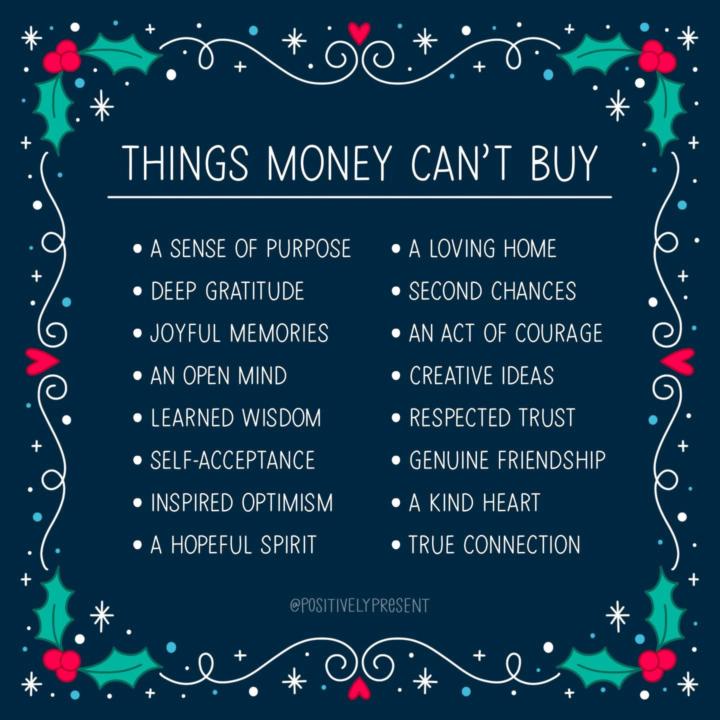Activity
Mon
Wed
Fri
Sun
Feb
Mar
Apr
May
Jun
Jul
Aug
Sep
Oct
Nov
Dec
Jan
What is this?
Less
More
Memberships
Free Skool Course
26.8k members • Free
Renee Lee Wellness & Research
625 members • Free
Be Well Co.
64 members • $83/m
The Prosper Community (Health)
271 members • Free
The Social Growth Skool
1.3k members • Free
Online Business Friends
83.9k members • Free
Kourse (Free)
114.7k members • Free
18 contributions to Be Well Co.
It’s Twixmas!!
TAKING ACTION: ✅ Did you know the week between Christmas and New Year’s is called Twixmas? Let’s have a little fun today—does Twixmas feel disorienting to you? If so, why? We’ve officially entered the strangest week of the year—the week between Christmas and New Year’s. (Did you know this time period has been named Twixmas?) It’s the season when we don’t know what to do, what day of the week it is, and if we should clean up our nutrition now or wait until after the new year. If you know, you know…😉 The next several days are often tricky because we’ve likely been out of our regular routines lately. Our bodies, brains, and cravings might be a bit confused this week. If you’ve been eating more lately, your stomach may growl a little more than usual. If you’ve been eating more sugar lately, your brain will crave it a little more for a few days. If you haven’t been exercising lately, you may have to dig deep into your discipline bag this week. What I want you to take away from this message is this: It’s okay. It’s okay if you’re a little hungrier, your cravings are a little stronger, and you have to rely on stronger discipline this week. If you plan for these things to happen, they won’t surprise you. You’ll expect them and already have an action plan in place. 🙌 When you work through potential scenarios ahead of time, you stand a better chance of being in control 💯: ✅ If you feel hungrier than usual, it’s okay to eat a little earlier. Intermittent fasting isn’t all or nothing, and it’s perfectly acceptable to work your way back into your regular eating schedule. Challenge yourself, but don’t allow yourself to get too hungry. ✅ When a craving hits, choose protein + fiber first. It isn’t the most fun option, but if you choose protein + fiber, and wait 20 minutes, your craving will subside! ✅ When a sugar craving hits all of a sudden, your blood sugar is probably dropping, per holistic nutritionist Elissa Goodman. “To keep your blood sugar balanced, eat a healthy amount of protein and add more high-fiber foods, like beans and legumes, to your diet, along with complex carbs. This will give you the fuel you need without the blood sugar spikes.” If you’re craving chocolate specifically, you likely may be deficient in magnesium. Eat more almonds, flaxseed, edamame, quinoa, or black beans to increase your magnesium.

4 likes • 12d
I wonder who named it that they’re just trying to sell more Twix candy bars lol it was really neat to see this year that I could not do the sugar. I ate a little bit of it, but it just was not working for me. My brain like refused it Thank you for the tips on fiber and protein hydration, but it was need to see how far I’ve come
Christmas Feast On...
“Keep calm and (Christmas) feast on.” ~Anonymous TAKING ACTION: ✅ What practical strategies do you have planned for the next few days? Share with the group today, as we can all help each other! ✅ Don’t forget about our FITMAS Challenge, friends! Remember, we are building habits that will carry us into the new year! On Monday, we talked about the importance of both truth and grace when it comes to navigating potential bumps in the road. Practicing truth and grace is an extremely effective mindset strategy, friends. You must have both. While I'd love to stay on the topic of mindset, I also understand that you desire some practical strategies that will help you navigate the next couple (or several) days: 🍽️ Start with protein and fiber anchors: Before diving into holiday treats, build your plate around high-protein options like turkey, ham, eggs, or nuts, and fiber-rich sides such as roasted vegetables, salads, or whole grains. 🚶🏼♀️Incorporate movement into festivities: Turn celebrations into active fun by suggesting family walks after meals (this reduces blood sugar spikes), playing outdoor games, or even a quick home workout session before gatherings. 🧠 Practice mindful portions with an “enough” mindset: Use smaller plates to sample everything, but remind yourself it’s okay to go back for seconds if you’re still hungry. Focus on savoring protein and fiber-rich items first. 🥤Hydrate and balance indulgences: Drink plenty of water or herbal teas between meals to stay full and support digestion, which will pair well with your fiber intake. FITMAS CHALLENGE: Standing Side Steps • Step right → together → left → together • 30–60 seconds Glutes, balance, circulation With these strategies in mind, don’t forget your Action Items today—share a practical strategy below that you will use over the next few days! ⬇️ Oh, and Merry Christmas Eve, friends! Hope Santa is good to you all! 🎅

NEW YEAR Pantry Checklist!
Click the link to access: https://www.canva.com/design/DAG7Z2bXTds/YKVYOsvoleHkUIAFi1p38w/edit?utm_content=DAG7Z2bXTds&utm_campaign=designshare&utm_medium=link2&utm_source=sharebutton

🎄 Christmas Recipes!!!
TAKING ACTION: ✅ Let’s share a little today, friends! How are you feeling overall this month? Are you doing your best where you can? What questions do you have as we round out the year? As promised, we’re going to talk about why fitness is so important when it comes to your health & wellness journey, but since Tuesdays are all about recipes, we’re going to focus on the nutritional piece a little today, as well! 💯 As we embark on our FITMAS challenge, it’s important that you fuel your body with mostly whole-food nutrition. The point I want to drive home today is that what you eat absolutely affects your workouts. We often don’t consider that, but it’s 100% true. Clean energy (food) = efficient operating machine 💥 As we finish up the year and lean into our fitness goals, let’s also focus on our nutrition. When you aren’t celebrating the holidays, I encourage you to choose whole-food nutrition when you can. Trust me, it’ll only improve your fitness efforts over the next couple of weeks! Speaking of whole-food nutrition, check out these healthy holiday recipes below! Please use discretion if you’re gluten-free and/or dairy-free! ⬇️ 40 Healthy Christmas Recipes for a Wholesome Holiday Meal FITMAS CHALLENGE DAY 2: Chair Squats• 8–12 reps• Sit down → stand up slowly. Repeat 3 times. Great for legs, glutes, and functional strength

Terrific Tuesday
Remember money can’t buy the things that make a soul happy. Don’t forget to take time to yourself and figure out your way Love y’all

1-10 of 18
@marca-horn-3023
Wellness is my industry! Finding solutions for problems and truly caring about people is my passion!
Active 18h ago
Joined Jun 30, 2025
Texas
Powered by



